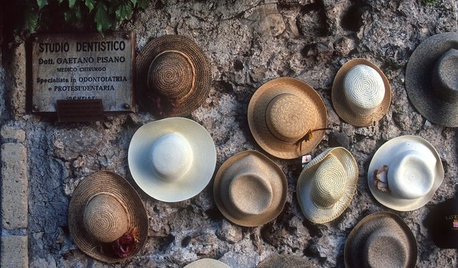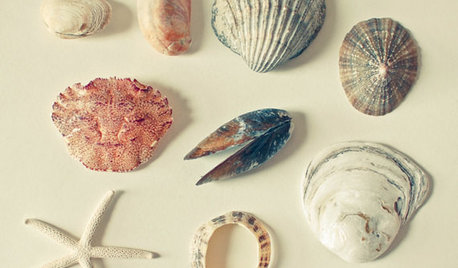How 'natural' is your bathroom?
silversword
15 years ago
Related Stories

COLORNature’s Color Wisdom: Lessons on Red From the Great Outdoors
Dab some of Mother Nature’s rouge around the home for an eye-opening look
Full Story
DECORATING GUIDESNature’s Color Wisdom: Lessons on Green From the Great Outdoors
Green will grow on you for interiors when you look outside for ideas on how to use it
Full Story
COLORNature’s Color Wisdom: Lessons on White From the Great Outdoors
Blizzard fierce or butter soft, white can highlight shapes, unify a room and perform miracles on the cheap
Full Story
COLORNature’s Color Wisdom: Lessons on Earth Tones From the Great Outdoors
Look to the land for hues that are grounding, soothing and endlessly versatile
Full Story
DECORATING GUIDESNature’s Color Wisdom: Lessons on Pink From the Great Outdoors
Leave your assumptions about pink at the princess playhouse door. Head outside instead for shades from shocking to subtle
Full Story
BATHROOM DESIGNBathroom Workbook: 7 Natural Stones With Enduring Beauty
Not everyone wants a marble bath. Bring organic warmth to counters, walls or floors with these hard-wearing alternatives
Full Story
BATHROOM DESIGNYour Bath: Create Calm With Natural Materials
Wood, Pebbles and Stone Give Your Bath a Soothing Look and Feel
Full Story
SHOP HOUZZShop Houzz: A Neutral, Natural Bathroom
Make your bathroom a real retreat with soothing colors and natural materials
Full Story
SHOP HOUZZShop Houzz: Try Stonewalling for a Striking Natural Bath
Rock your rustic, modern or traditional bathroom with traditional stone tile
Full Story0

BATHROOM DESIGNSoak Up Nature With Outdoor Baths
Luxurious and downright sexy, outdoor baths are the ultimate back-to-nature indulgence for modern homes
Full StorySponsored
More Discussions



rusty_blackhaw
gringojay
Related Discussions
How did you decide on your bathroom look?
Q
If You Have a Black Vanity -- How Did You Decorate Your Bathroom?
Q
Xpost from bathrooms - how width of bathroom makeup vanity
Q
Bathroom dust and how feasible is a DIY bathroom remodel for me?
Q
luckygal
silverswordOriginal Author
rusty_blackhaw
silverswordOriginal Author
jonnys
simplemary
User
luckygal
User
silverswordOriginal Author
User
silverswordOriginal Author
User
luckygal
User
rusty_blackhaw
brendan_of_bonsai
User
walkintub
rusty_blackhaw
theherbalist
silverswordOriginal Author
reyesuela
garykeezer
rusty_blackhaw